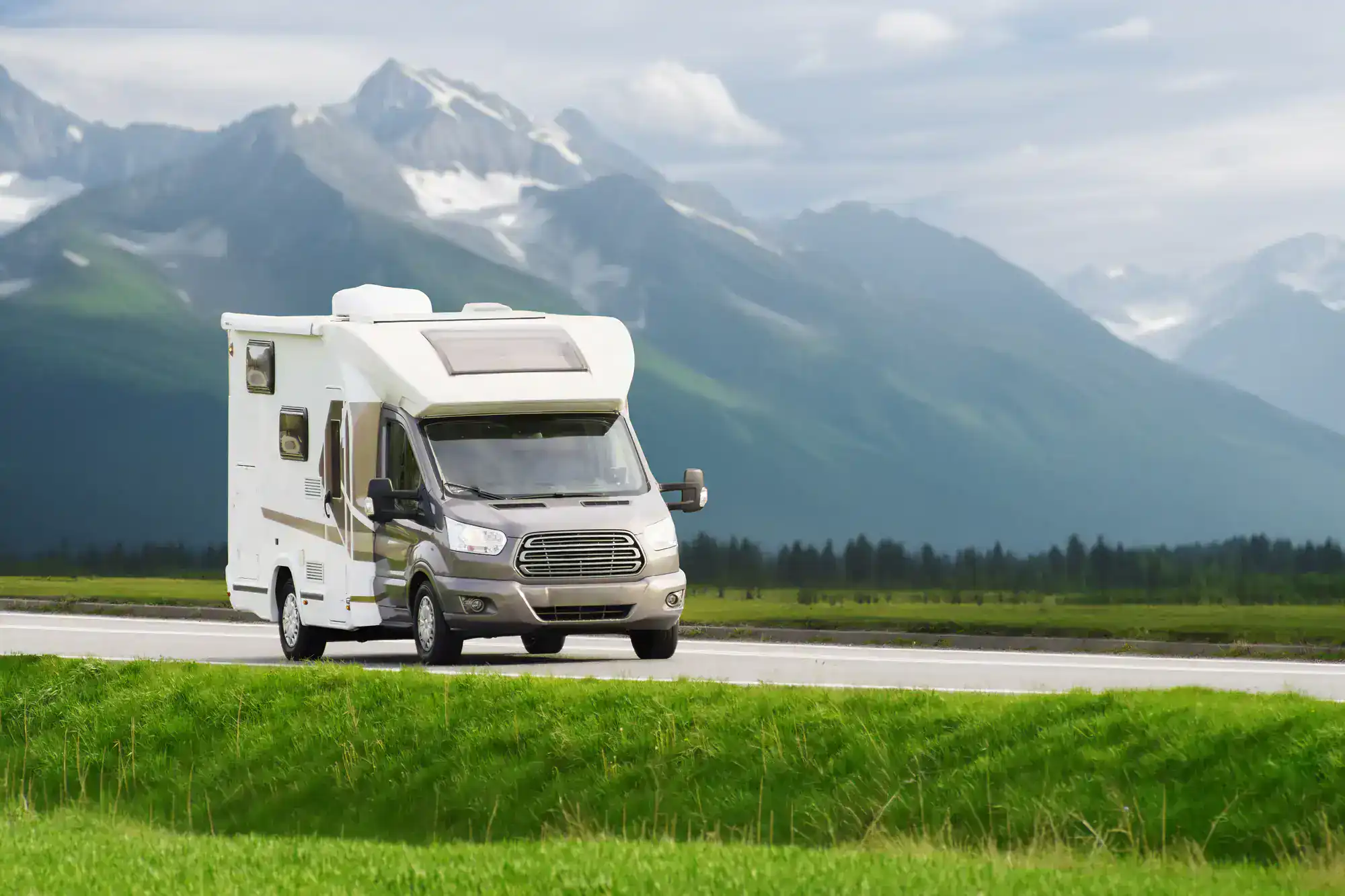
Hear from Our Customers
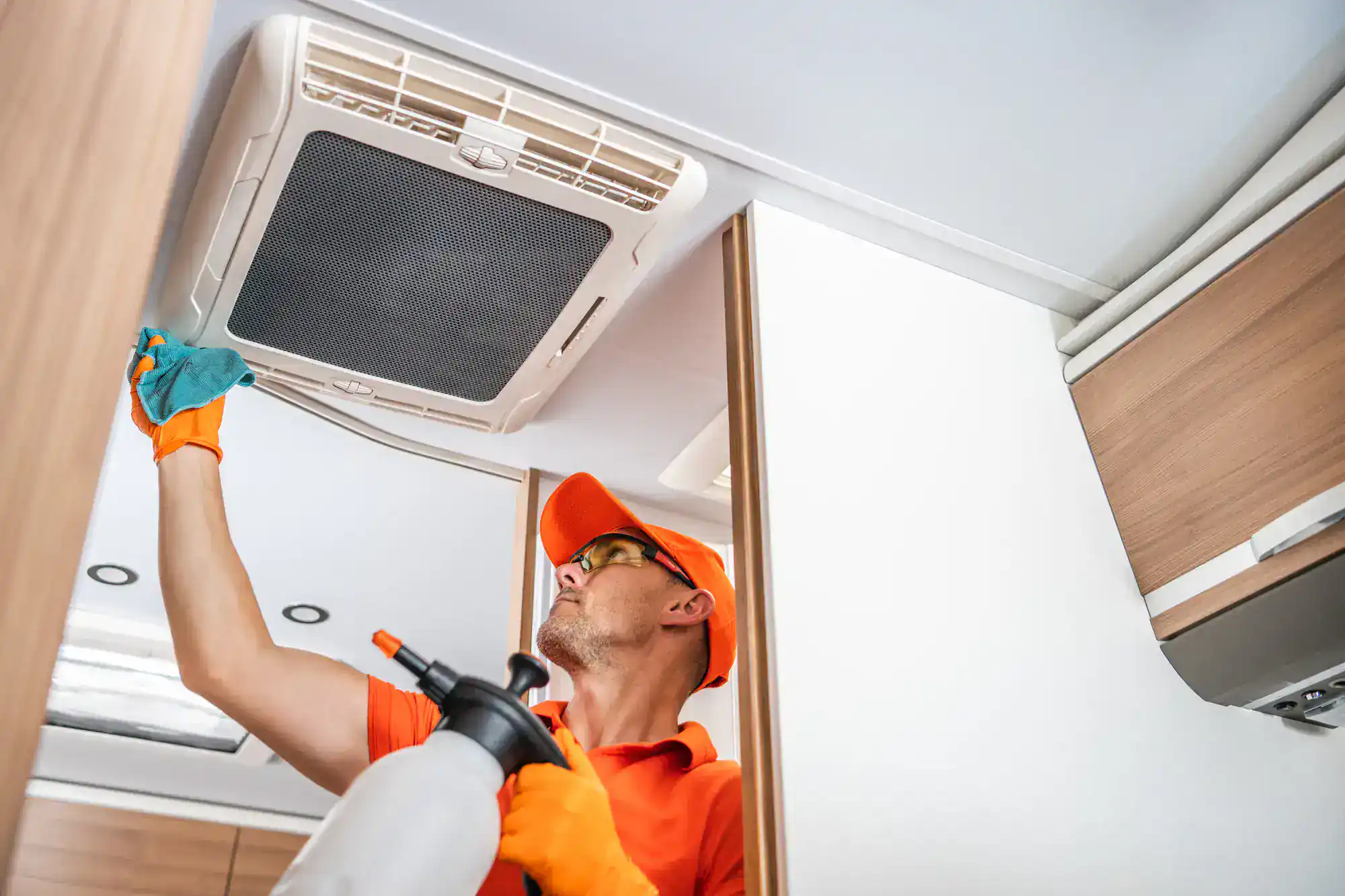
Your RV isn’t just a vehicle—it’s your ticket to freedom, your home away from home, your gateway to North Carolina’s mountains and coast. When it’s properly maintained, you’re not worried about breakdowns ruining your weekend at Stone Mountain or your month-long cross-country trip.
You sleep better knowing your roof won’t leak during the next storm. Your plumbing works when you need it. Your electrical systems power your life on the road without drama. Your slide-outs extend and retract smoothly every time.
That’s what real maintenance gets you—peace of mind and the ability to focus on what matters: making memories with the people you love.
Stream RV has been serving Vance County RV owners for years with the kind of service that keeps customers coming back. We’re locally owned, fully licensed and insured, and our certified technicians know RVs inside and out.
We’re not the guys who learned about RVs from YouTube videos. We’ve been elbow-deep in RV systems since before everyone decided they wanted to live on the road. Whether you’ve got a 20-year-old Class A or a brand-new travel trailer, we’ve seen it before and we know how to fix it right.
Located just 25 minutes from the Triangle, we’ve built our reputation one satisfied customer at a time in a community where word travels fast.
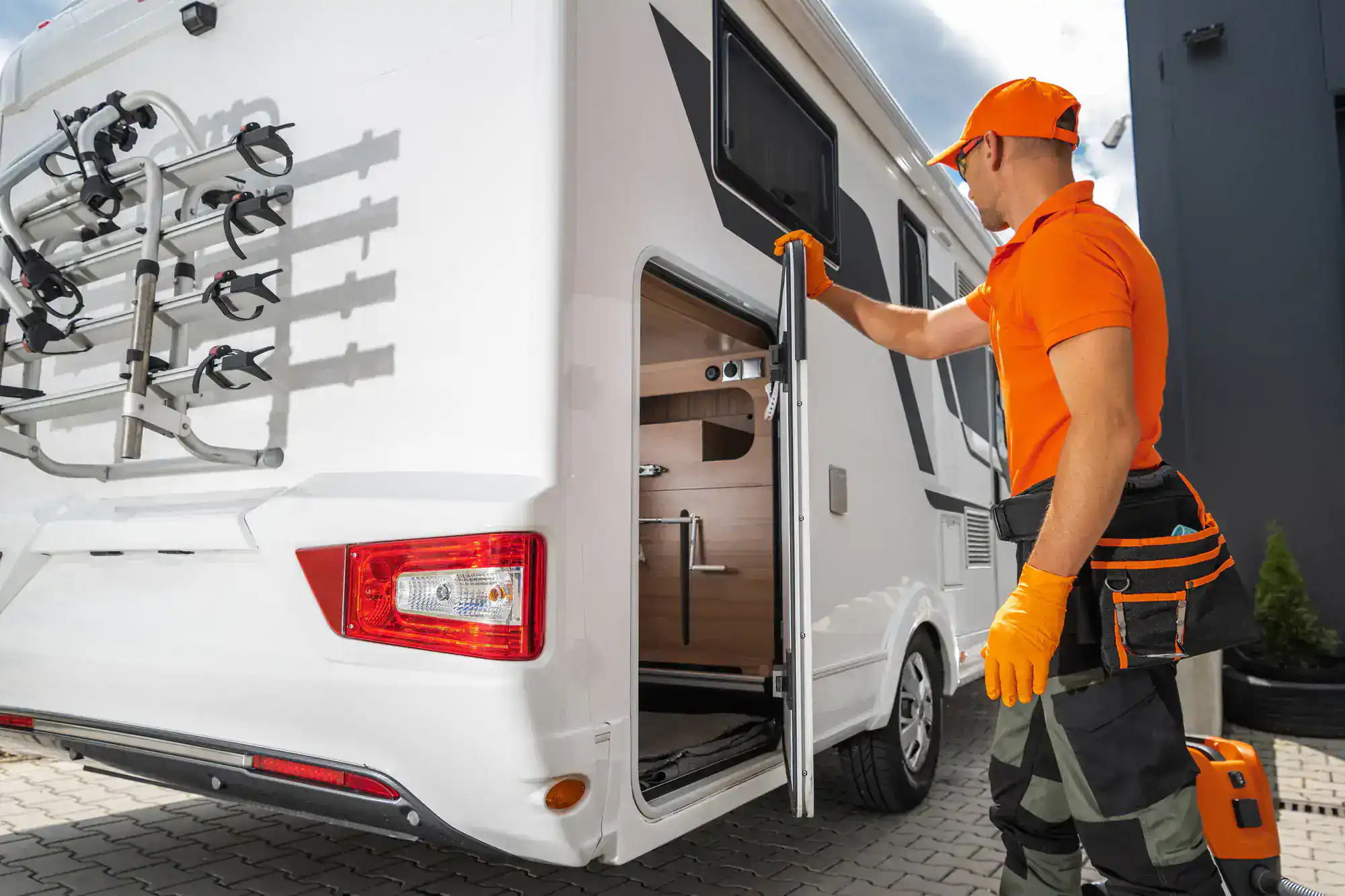
First, we do a thorough inspection of your RV’s major systems—electrical, plumbing, propane, roof, and mechanical components. We’re not just looking for obvious problems; we’re checking for wear patterns and potential issues that could leave you stranded later.
Next, we handle whatever maintenance or repairs your RV needs, from routine oil changes and winterization to complex electrical troubleshooting and roof work. We use quality parts and explain everything in plain English, not technical jargon that leaves you confused.
Finally, we test everything to make sure it works properly before you pick it up. You’ll get a detailed report of what we did and recommendations for future maintenance. No surprises, no hidden issues discovered after you’ve left—just an RV that’s ready for wherever you’re headed next.
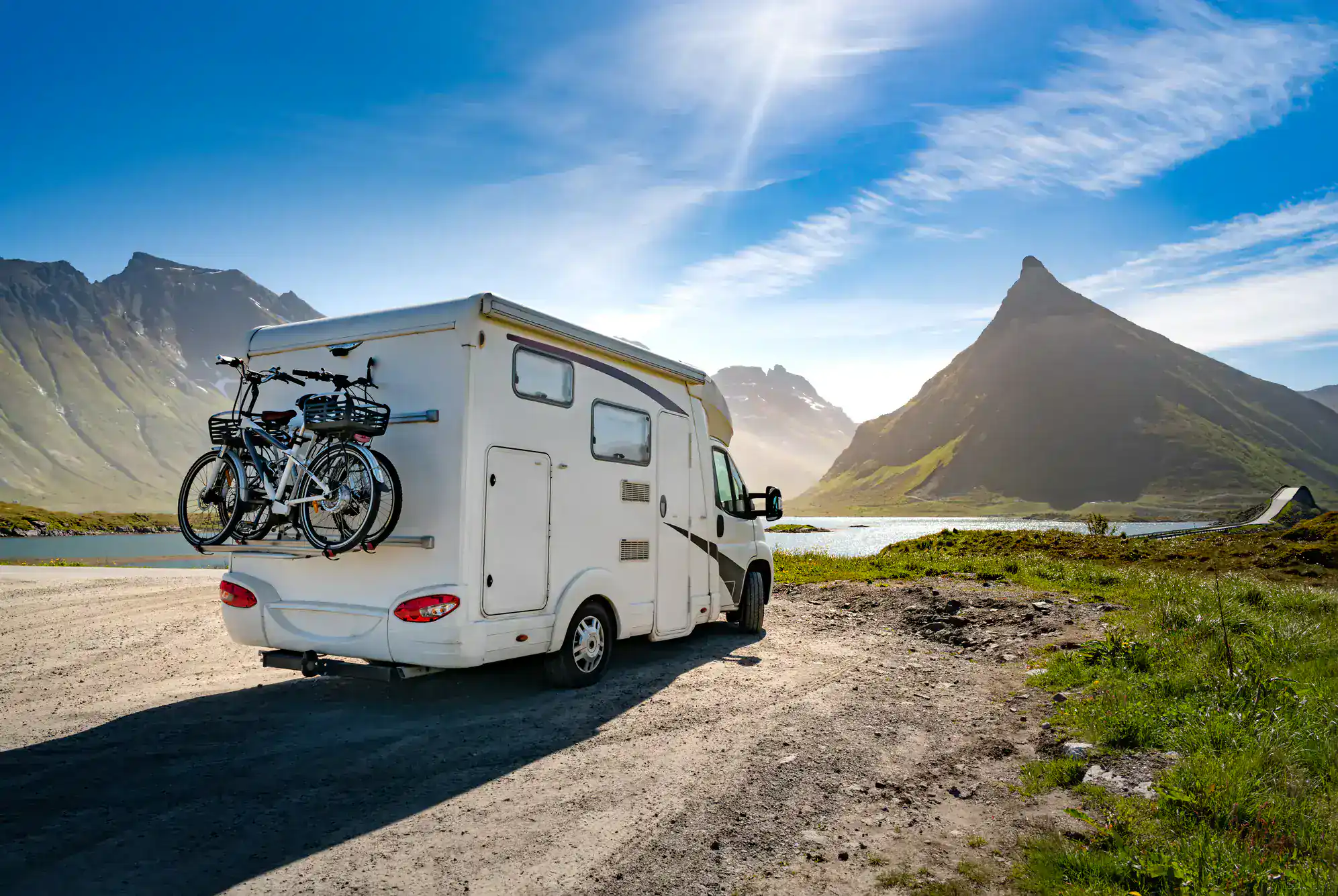
Ready to get started?
We handle the full spectrum of RV maintenance and repair services. Winterization and de-winterization to protect your investment during North Carolina’s unpredictable winter weather. Propane system inspections and leak testing for safety. Plumbing repairs that fix low pressure, leaks, and line replacements.
Our electrical work covers everything from troubleshooting mysterious power issues to installing solar systems and lithium battery upgrades. We repair and maintain slide-out mechanisms, HVAC systems, and all major appliances. Engine maintenance keeps your motorhome running smoothly with regular oil changes, fluid top-ups, and tire rotations.
We work on all major brands—Forest River, Keystone, Jayco, Heartland, Dutchmen, Coachmen, Grand Design, Chinook, and many others. Whether it’s a quick fix or a major overhaul, we warranty our workmanship for 6 months or 6,000 miles, whichever comes first.
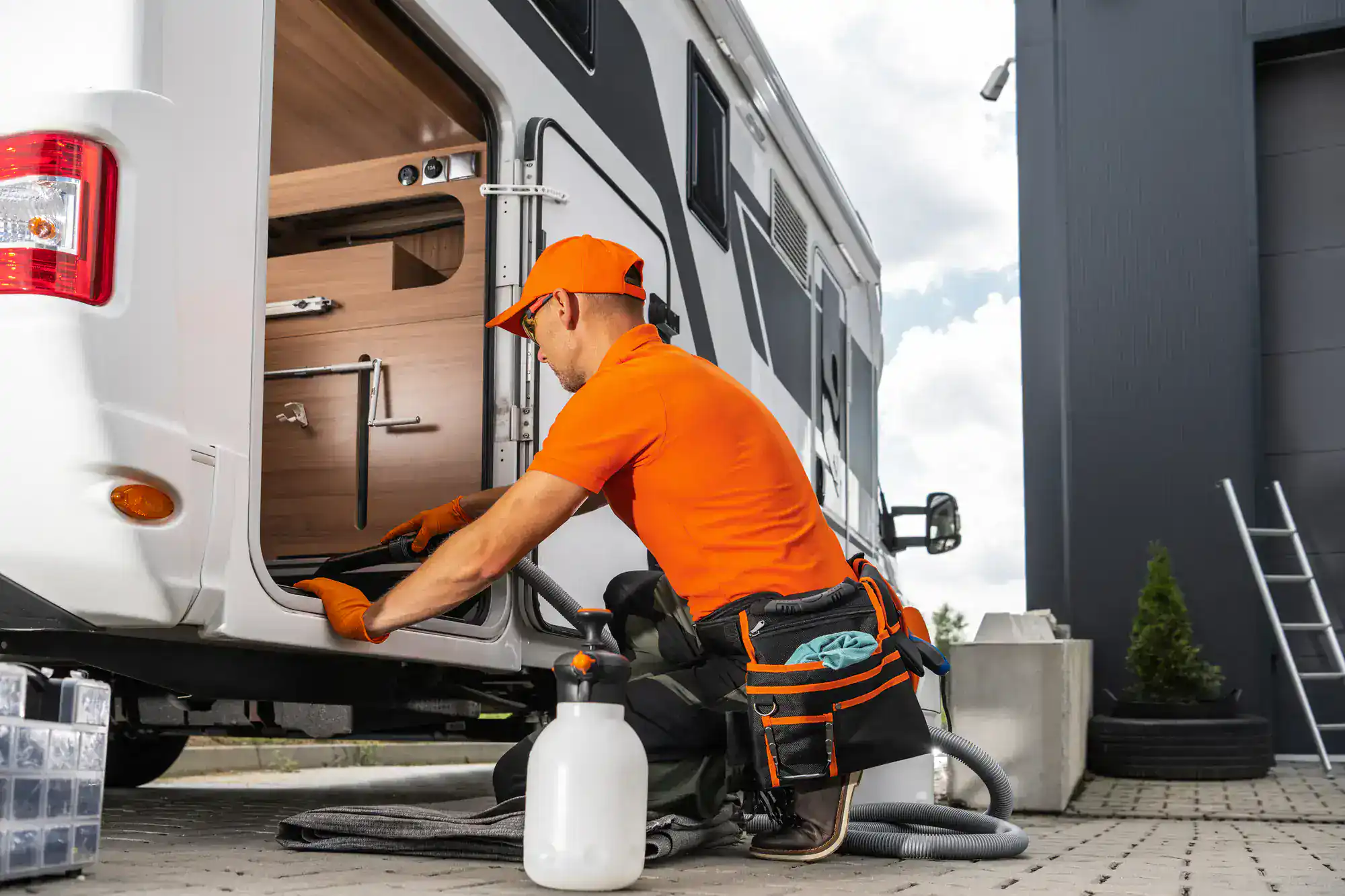
Most RVs should have comprehensive maintenance at least once a year, but it depends on how much you use it and where you travel. If you’re a weekend warrior hitting North Carolina’s state parks regularly, annual service is usually sufficient. Full-timers or heavy users should consider service every 6 months or 10,000 miles.
The key systems that need regular attention include your roof and seals, plumbing and water systems, propane system, electrical connections, and slide-out mechanisms. Don’t wait until something breaks—preventive maintenance costs a fraction of what emergency repairs will run you, especially when you’re stuck at a campground 500 miles from home.
We typically recommend spring service before camping season starts and fall service that includes winterization if you’re storing your RV through the winter months.
RV winterization involves completely draining your water system and filling the lines with RV antifreeze to prevent freezing damage. Even in North Carolina, where winters are relatively mild, we get enough freezing nights to burst water lines, crack holding tanks, and destroy water pumps.
The process includes draining your fresh water tank, hot water heater, and all water lines. We then pump RV antifreeze through every faucet, shower, toilet, and appliance that uses water. We also drain and protect your gray and black water tanks and ensure your water pump is properly prepared for storage.
Skipping winterization might save you a couple hundred dollars upfront, but replacing a cracked holding tank or rebuilding a water system after freeze damage will cost you thousands. It’s not worth the risk, even in our relatively temperate climate.
Warning signs include flickering lights, outlets that don’t work, frequent tripped breakers, and appliances that run intermittently or not at all. If you’re experiencing any of these issues, don’t try to troubleshoot complex electrical problems yourself—RV electrical systems are more complicated than most people realize.
RVs have both 12-volt DC and 120-volt AC systems, plus converters, inverters, and sometimes solar charging systems. A problem in one system can affect others, and improper repairs can create fire hazards or damage expensive components like your refrigerator or air conditioner.
We use proper diagnostic equipment to trace electrical problems to their source rather than guessing. Most electrical issues stem from loose connections, corroded terminals, or failed components that are relatively inexpensive to fix when caught early.
Stop trying to force it and call for service immediately. Continuing to operate a malfunctioning slide-out can cause expensive damage to the mechanism, seals, or RV structure. Most slide-out problems are caused by lack of lubrication, debris in the tracks, or electrical issues.
Common symptoms include slow or jerky movement, unusual noises, uneven extension or retraction, and complete failure to move. Sometimes the problem is as simple as a blown fuse or loose connection, but slide-out systems are complex and require proper diagnosis.
We service all types of slide-out mechanisms—hydraulic, electric, and cable-driven systems. Regular maintenance including cleaning, lubrication, and seal inspection prevent most slide-out problems. If your slide-out is already having issues, we can usually repair it without replacing the entire mechanism, saving you thousands of dollars.
Basic maintenance like winterization or de-winterization typically runs $150-300. Oil changes and routine engine maintenance range from $100-400 depending on your RV’s engine size and type. More complex repairs like slide-out service, electrical troubleshooting, or plumbing repairs can range from $300-1500 depending on the scope of work.
Major repairs like roof replacement, engine work, or complete system overhauls obviously cost more, but we always provide detailed estimates before starting work. We’re transparent about costs and explain why repairs are necessary rather than just handing you a bill.
Remember that preventive maintenance is always cheaper than emergency repairs. A $200 annual service can prevent thousands in damage from neglected systems. We also work with insurance companies and warranty providers to help minimize your out-of-pocket costs when possible.
We work on RVs of all ages, from brand-new units still under warranty to vintage coaches from the 1980s and 90s. Older RVs often need more attention, but they’re usually built more solidly than some newer units and are definitely worth maintaining properly.
The challenge with older RVs is often finding parts, but we work with multiple suppliers and can usually locate what you need or find suitable alternatives. We’ve worked on everything from classic Airstreams to old Winnebagos to vintage travel trailers that have been in families for decades.
Age doesn’t automatically mean your RV isn’t worth fixing. We’ll give you honest advice about whether repairs make financial sense or if you’d be better off upgrading. But if you love your older RV and want to keep it running, we can usually make that happen.